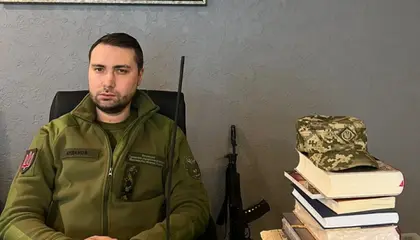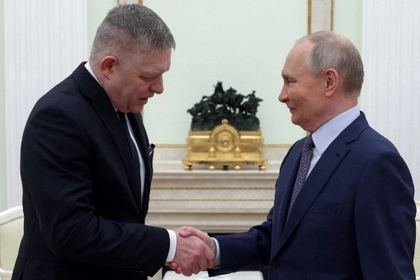Revealing Russia’s multiple plans and preparations to assassinate Ukraine’s president, Ukraine’s military intelligence chief has given what amounts to an intel briefing in a lengthy and wide-ranging video published on YouTube.
Topics covered in Kyrylo Budanov's update for the country included thwarted attempts on Zelensky, Crimean liberation, Russian disinclination to use nuclear weapons, China, Russian mobilization, and Ukraine’s future dangers after victory.
- View the newest war in ukraine update in the Kyiv Post’s daily news stories that came out today.
- Get the freshest Ukraine news updates as of today.
JOIN US ON TELEGRAM
Follow our coverage of the war on the @Kyivpost_official.
Russian Plans to Assassinate President Zelensky
Moscow has repeatedly planned operations to assassinate President Volodymyr Zelensky, and each time the Ukrainian special services thwarted the plans through unspecified means, according to Ukraine’s military intel chief.
Budanov – Ukraine’s Main Directorate of Intelligence (HUR) head, said the Russians had planned operations multiple times to assassinate President Zelensky.
“They seriously prepared for certain operations several times. Very seriously,” he said in an interview with journalist Natalia Moseichuk, published on Friday, Sept.1.
“They carefully planned and carried out preparatory measures,” but they never happened because of the effectiveness of Ukrainian special services.
Ukrainian behind-the-lines operators responsible for punishing strike deep in Russia
Clandestine operators flying drones from a secret Russian launch site were responsible for a recent punishing attack on a Russian military air base, Budanov said.

Zelensky Meets CIA Director William Burns in Ukraine
Two Russian air force Il-76 four-engine military cargo jets were totally destroyed, two more were very likely damaged beyond repair, and as many as three more were hit by explosions and debris and possibly grounded following a strike on the Kresty airfield near the northwestern Russian city of Pskov, the American publication The War Zone (TWZ) reported on Thursday.
Kresty Air Base is about 700 miles northwest of the Ukrainian border, near the NATO member state Estonia. According to local reports and official Russian statements, between 15 and 20 drones were used in the attack.
You can read more about that story here.
Liberation of Crimea and Russian Nuclear Weapons Doctrine
In the interview, Budanov also said that Crimea will be liberated.
“This land is ours. No Russian can be there. It belongs to us and no one else,” he told Moseichuk.
He’s also convinced that Russia will not employ nuclear weapons even if it loses control of the occupied peninsula.
Budanov said that the devices, commonly referred to as nuclear weapons, are classified as "strategic deterrence means" in Russian doctrine.
“It’s not even considered a weapon,” he said.
When Moseichuk expressed skepticism, he responded, “No, it’s unrealistic.”
Additionally, Budanov believes that the threat of using nuclear weapons from Belarus against Ukrainians is “zero.”
“This is merely a big geopolitical game, he said. “There’s no risk involved [in making threats]. I believe so because this isn’t a nuclear weapon so much as a tool for nuclear deterrence.”
China Won’t Provide Weapons to the Kremlin
Turning to China, Budanov said Russia’s military defeat in the war is not very beneficial for Beijing.
“For China, Russia’s military defeat is bad, to say the least. Because in the grand strategic game, as they perceive it, they would end up one-on-one with what they consider their adversaries, and they do not want that,” he said.
At the same time, Budanov said that Beijing has openly stated its support for the territorial integrity of Ukraine.
“They seek a scenario in which Russia does not suffer a clear defeat to avoid being left alone with their own issues,” he said.
“It is also desirable for Ukraine to regain its sovereignty concurrently.
“However, I must emphasize that it is only desirable. The loss of the Russian Federation in the war poses a threat to them.”
According to him, “China is always in the mix.” However, Budanov believes that it will not escalate to the point of Beijing supplying weapons to Moscow.
“When the supply of dual-use items from China to Russia is discussed... What are we talking about?
“We are talking about drones, such as Maviks and Perrots, as well as chips,” he said, but China has no intention of providing actual weapons to Russia.
Russian Mobilization
Budanov also mentioned that the Kremlin is contemplating mobilization of 450,000 Russians in the fall, but he downplayed the need for excessive concern.
“They didn’t dare do this in the winter. They are currently considering announcing a mobilization in the fall, with an additional 450,000 people being called up,” he said. But, “we shouldn't be overly alarmed by this.”
According to him, after around 350,000 people were mobilized in Russia last fall, covert mobilization has continued.
“Every month, Russia has been calling up 20,000 to 22,000 people. If you do the math... multiply eight months by that number, they’ve mobilized at least 160,000 during this period. And as you can see, nothing catastrophic has occurred.”
Budanov said that if these 450,000 were mobilized, “they would be absorbed by the Ukrainian land.” He said that with each successive wave of mobilization, the quality of those conscripts tends to decline.
He said there’s a significant disparity between Russia’s announced plans and the actual execution of their orders.
“What they produce simply does not meet their needs on the front lines.”
After Ukraine Wins, Russia May Return – in 10 years
Even after Ukraine achieves victory, he thinks Russia may seek revenge after some time. According to Budanov’s predictions, it will take about 10 years for Russia to recover militarily.
Budanov forecasts that: “Exactly 10 years is a reasonable timeframe for re-evaluating all of this and beginning to plan their revenge again.
“We will certainly have 10 years, and if we can find other ways to exert influence over the territories that emerge after Ukraine’s victory, we may have even more time.
“But we can count on at least 10 years.”
You can also highlight the text and press Ctrl + Enter






